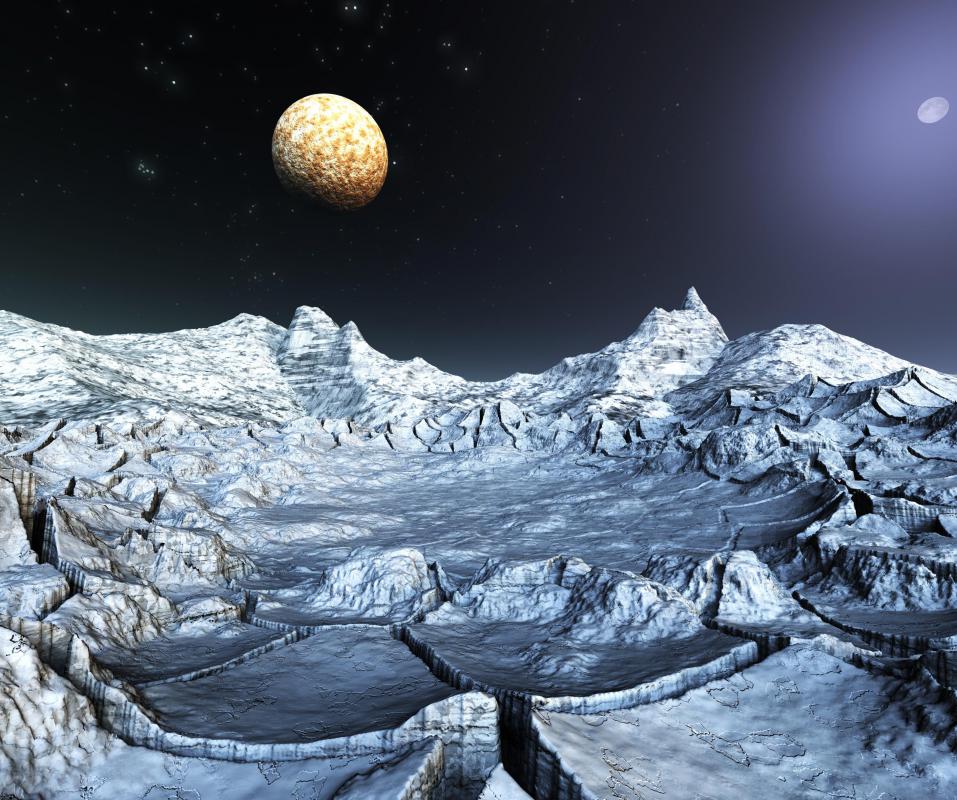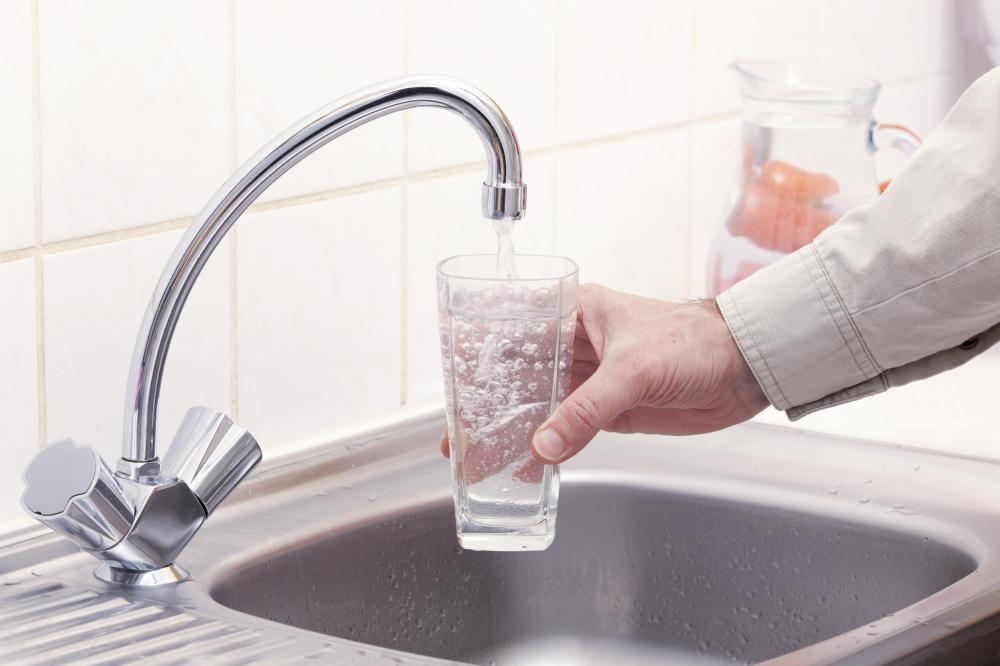At AllThingsNature, we're committed to delivering accurate, trustworthy information. Our expert-authored content is rigorously fact-checked and sourced from credible authorities. Discover how we uphold the highest standards in providing you with reliable knowledge.
What are Water Resources?
Water resources typically are supplies of water that could be beneficial to people. Making the distinction between water and water resources is important because not all of the water to which humans have access is suitable for their needs. Humans generally need fresh water, and most of the water on Earth does not fall into that category. Sources of fresh water include lakes, rivers, and ice caps.
Potential water resources for humans are limited when compared with the total amount of water on Earth. Only three percent of water on the Earth is fresh water. Although fresh water is distributed across the globe, the majority of it is frozen in the form of glaciers and the polar ice caps. This leaves most people on Earth to rely on rivers, lakes, and groundwater. These water resources are becoming subjects of increasing problems.

At one time, there was not a great deal of attention paid to water resources for humans. In modern times, however, people are beginning to realize that the subject cannot be ignored. Emphasis on conserving and protecting those resources has grown into international efforts. This has happened because some places already are experiencing water shortages. Experts foresee problems for much larger portions of the population in the future if prevention measures are not taken.

There are a number of things that are responsible for the present and impending water problems. Pollution, climate change, and urbanization are a few of the common examples. Climate change is affecting resources by causing rivers and lakes to dry up. Many of these water resources have been used for centuries to support household and agricultural uses. There often are not any sustainable alternatives readily available.

Urbanization affects water resources because many cities are growing but their water supplies are not. More people living in one place means that the water requirements in that place are greater. Unfortunately, it is not an option to make limitless supplies of water available to them.
Pollution involves people dirtying their water resources. Sometimes this is done by individuals and sometimes it is done by industrial entities. Dealing with pollution often is not simple. In some cases, even when it is technically possible, there is a lack of resources to do so.

Saltwater sources can in some cases be used as water resources. This is done by way of a process known as desalination, which involves removing the salt from the water. This is an expensive process and it is not widely used. It is not generally promoted as a solution for water problems.
Much effort is being invested by governments and civil society organizations to make people aware of the issues surrounding water resources for humans. Tips and solutions often are offered to educate people on how to change their habits. It is generally believed that sustainable solutions must include the efforts of all levels of society.
Frequently Asked Questions
What exactly are water resources?

Water resources are supplies of water that are potentially useful to humans, including lakes, rivers, groundwater, and glaciers. These resources are vital for drinking water, agriculture, sanitation, and industrial processes. According to the United Nations, freshwater resources are unevenly distributed, with over 2 billion people living in countries experiencing high water stress.
Why are water resources important for ecosystems?
Water resources are the lifeblood of ecosystems, providing habitats for a myriad of species and maintaining the health of environmental systems. They support biodiversity, regulate climate, and facilitate nutrient cycling. The World Wildlife Fund highlights that freshwater habitats are home to more than 10% of all known animals and about 50% of all known fish species.
How are water resources distributed globally?
Global water resources are unevenly distributed, with certain regions like Brazil, Russia, and Canada having abundant freshwater, while others like the Middle East and North Africa face severe scarcity. The World Bank states that only 2.5% of Earth's water is freshwater, and less than 1% is accessible for direct human use.
What are the main threats to water resources?
The main threats to water resources include pollution, overuse, climate change, and infrastructure challenges. Pollution from industrial, agricultural, and domestic sources can render water unsafe. The World Health Organization reports that over 80% of wastewater is released to the environment without adequate treatment, exacerbating water quality issues worldwide.
How can we sustainably manage water resources?
Sustainable management of water resources involves practices like reducing consumption, protecting natural water cycles, and improving water efficiency. The United Nations advocates for integrated water resources management (IWRM), which promotes coordinated development and management of water, land, and related resources to maximize economic and social welfare without compromising the sustainability of vital ecosystems.
What role do individuals play in conserving water resources?
Individuals play a crucial role in conserving water resources by adopting water-saving practices such as fixing leaks, using water-efficient appliances, and practicing mindful consumption. Education on water conservation can lead to significant savings; for instance, the U.S. Environmental Protection Agency estimates that the average family can save 180 gallons per week by fixing household water leaks.
AS FEATURED ON:
AS FEATURED ON:















Discussion Comments
@clintflint - So many people waste water at the moment though it's not funny. When you look at the fact that astronauts have systems that essentially recycle 100% of their water usage you can see where the best solution to our problem of sustainable water resources might be.
The real problem is that people don't want to spend money and effort fixing a problem until it's almost too late.
@Fa5t3r - I think there are a few problems with desalination that have yet to be solved. For one thing, if it's done on a large scale, where are they going to put the salt and other minerals that are extracted? If they are dumped back into the ocean, that will start to concentrate the water which wouldn't be good for ocean life.
Doing it over a wide space would make it cheaper, as solar energy would be more of a viable option, but the ocean is already quite a crowded place, especially close to cities.
I've often thought something could be done that uses waste heat from industry, but that seems to be more and more often recycled in other ways.
Our dwindling water resources are definitely a cause for concern, but I don't think desalination is anywhere near a point where it should be considered a potential solution.
I do wonder why desalination hasn't become more widely used. I know it's expensive right now, but most technologies are when they first start out. I'm sure with solar power or some other kind of renewable energy source they could figure out a low-cost way of taking fresh water from the sea.
This is an issue that is going to become more and more urgent as time goes by, so we do need to figure out some way of increasing our water resources. Otherwise the world is going to end up in a lot of trouble.
Post your comments